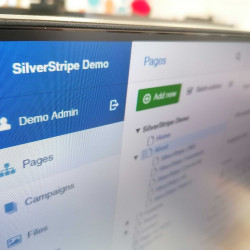The internet is often the first place people go to find information, and it's not always good enough to just have your website there for people to find. You also need to write compelling content that engages your audience.
Often readers will spend a few seconds on your content before deciding whether it's compelling to read and suits their needs. So you need to make the most of those seconds: compel your readers to make a purchase or join your email list for the latest offers before they leave.
But how can you do this?
1. Make sure your content is scannable

Remember the golden rule of writing: your readers are looking for an answer and are tight on time. Whether they're looking for party ideas or fun days out, your content needs to provide what they're looking for when they're looking for it.
If your reader has to go through paragraphs upon paragraphs to find out whether you're open on weekends, they're not likely to hang around and make a booking.
But if you use headlines and bullet point lists, it's easier to scan your content and find the answers your readers are looking for.
2. Don't be too wordy
Following on from point 1, don't make your content too long.
Writing content for your website as though you're writing a university essay that has a minimum word count can be offputting for the readers who are on your website.
Or in other words, if you can make a point in fewer words, do that; it's more appealing.
3. Make your point at the beginning of the content

We've all heard of recipes on websites where you have to read the author's life story before they even give you the ingredients you need, let alone the method.
It's frustrating going through all the fluff before you get to the point of the content.
Your readers may feel the same way.
Keeping the important bits at the top of the content can keep them engaged and willing to read the rest.
4. Show your reader you're worth it
You want your audience to make a booking on your website, but how do they know you're the best at what you do?
If they're wondering whether to book with you or a close competitor, it can help to show that you're the best.
Show them reviews and images or videos that show you know what you're talking about and you're the best option.
5. Avoid all errors
Mistakes happen, but your content will be judged on quality, not quantity.
Spelling errors, grammatical errors and incorrect punctuation all make your content look rushed and unfinished.
It can also reflect poorly on your business and the perceived experience your audience will be expecting.
All of these can be avoided with proofreading and free software.
6. Don't use industry-specific terms
If your reader doesn't know what you're talking about, they're not going to book with you because they don't think they'll understand you on the day.
There are three things you can do to help:
- Keep your sentences short
- Avoid jargon
- Give examples
If you do these three things, your content is much easier to read and understand for someone who doesn't have industry knowledge.
7. Keep your audience in mind

After a while, you'll find you're writing what you want to write about, not what your audience wants to know about.
If you're trying to inform your audience about your offering, you need to make sure you're writing for your audience. What features do they need to know about? Do they need to know about the different courses they can take part in rather than the merits of the different surface materials you're using?
Instead of trying to inflate your ego and show that you know everything there is to know, stop and think, "Does my audience need to know this?".
So what's next?
Now it's over to you.
These seven tips will put you on the right path when it comes to writing content for your website. However, if you're not feeling confident that you're getting it right, reach out to us. We're always here to help.





